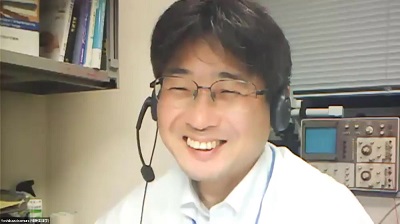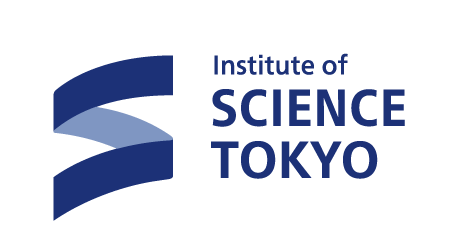The fourth “Find-Your-Role-Model” Session in AY 2022 was held

The fourth “Find-Your-Role-Model” Session in 2022 invited Dr. Yoshikazu Isomura, Professor in the Department of Cell Physiology, Tokyo Medical and Dental University, as a guest.
Dr. Isomura graduated from Osaka University School of Medicine in 1996 and obtained his PhD from Kyoto University, where he worked at the Tokyo Metropolitan Institute of Neuroscience from 2000 and at the Buzsaki Laboratory at Rutgers University in the United States in 2002. After returning to Japan, he worked at RIKEN before becoming a professor at the Tamagawa University Brain Science Institute. His research is focused on elucidating the mechanisms and functions of information processing in the neural circuits of the cerebrum, and he is at the forefront of neuroscience.
In the session, he spoke about how he became interested in medical research, the difficulties he faced, lessons learnt and impressions he gained in various research environments, his vision for neuroscience in the future, and advice for students and researchers.
Dr. Isomura emphasised the importance of having the courage to do what you really want. In his research career to date, he has never had a research theme imposed on him and has always decided his career path on his own. He said that his decision not to get a medical licence when he graduated from medical school and the fact that he had accumulated research in various laboratories were all because he was doing what he wanted to do.
He also mentioned that the most crucial thing in research is to never give up. For example, he said that in the first three months of his research in the Buzsaki laboratory, most of his experiments ended in failure. However, through trial and error, he succeeded in experiments that were said to be impossible. In this way, he stressed that it is essential to have the mindset that "if you keep struggling, you will get by" when you cannot see the results.
Next, we also heard about the future prospects for neuroscience. In recent years, the scale of neural activity that can be observed has increased, and in the future it will be necessary not only to observe neural activity, but also to unravel the principles and algorithms of brain activity from it, he said. He also said that it is important to think about what should be solved for us to say we fully understand the workings of the brain. Until now, neuroscience researchers have mainly specialised in experiments on animals, but in the future they will need to be able to handle not only experiments but also various dry fields such as theory, statistics, programming and deep learning, and the qualities required of researchers are likely to change. He said that collaboration with researchers in other specialisations is increasing, but that it is vital to respect each other and build a relationship of equal trust at such times.
As a final message to the participants, he stressed that they should be free and courageous to do what they want to do. We only have one life, and we all turn to stone when we die. He said that if we are all going to be the same when we die anyway, it is imperative to do what you love. He left us with the message that it is okay to go off the rails of society and find your own way of life.
- HOME
- Activity Reports
- The fourth “Find-Your-Role-Model” Session in AY 2022 was held

_Dr.Isomura.jpg)